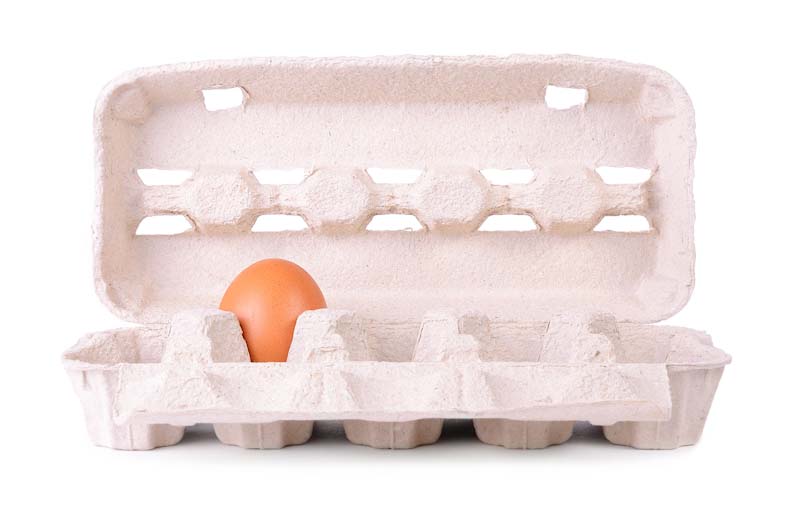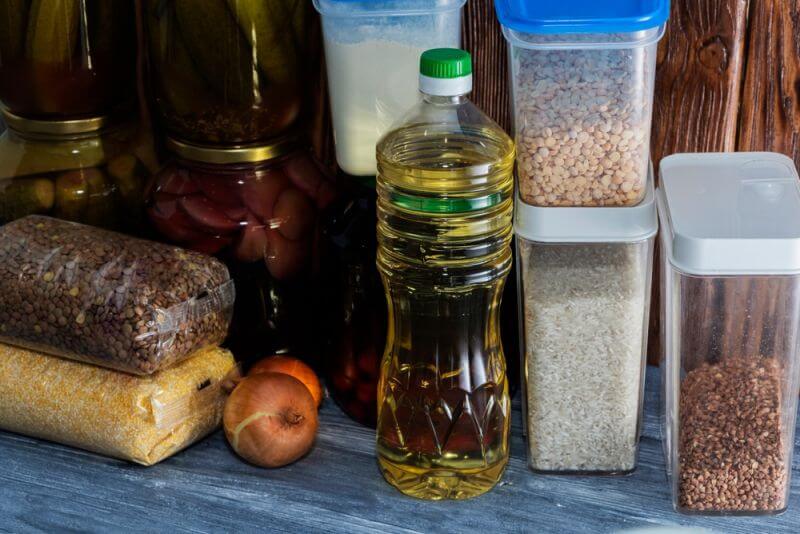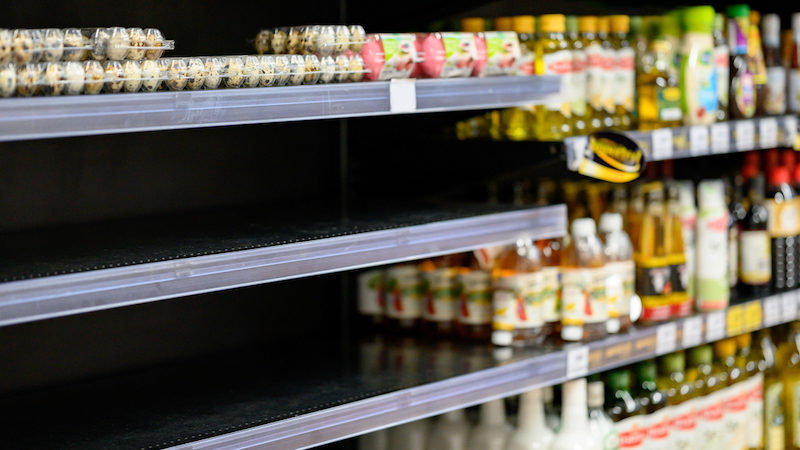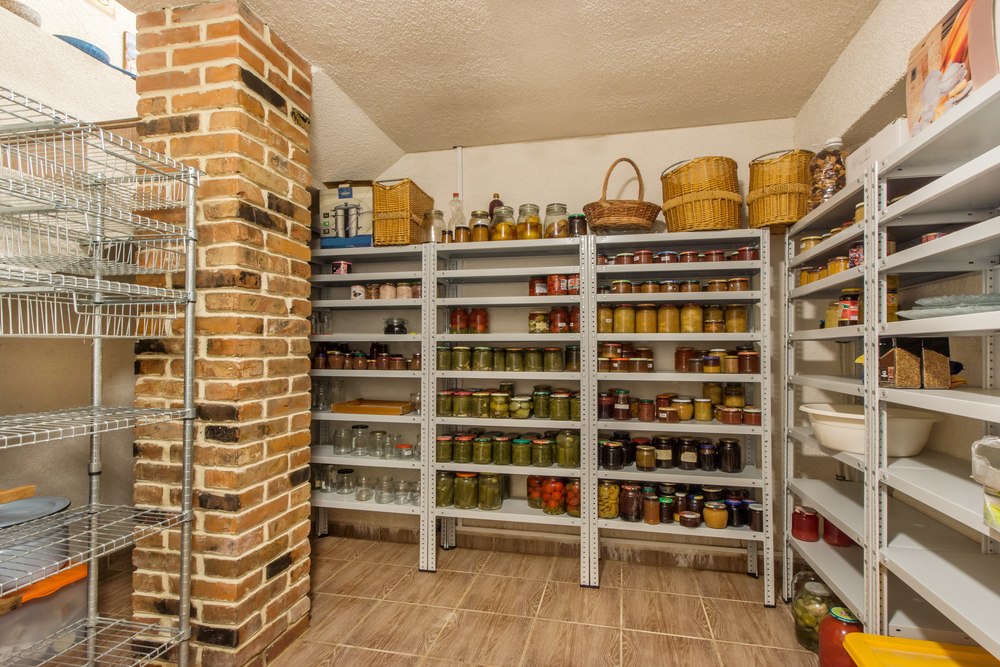A fire at an egg farm in January, killed 100,000 chickens, in the midst of already high egg prices. This raised concerns that prices would climb still higher. In reality, it will probably have a very minimal impact, considering there are roughly 50 million hens working overtime to supply us with commercially laid eggs.
This also reignited concerns from 2022 about food factories burning down. The real count of just how many of those there were may never come to light, but I’ve heard figures anywhere from 20 to 95. Sadly, there seem to be many who are more interested in making those who think something has actually happened out to be conspiracy theorists, than to find out the truth about what has been happening. I’m sure that these aren’t the first food factories to burn down; but I can find no real data on just how many typically burn down in a year.
Adding to the confusion are rumors that President Biden was recorded as saying something that has been interpreted as the government was going to artificially create food shortages. This sounds like conspiracy theory stuff, especially considering that there’s still an active war between Russia and Ukraine, both big food and fertilizer producers. The impact of that war is being felt around the world. And don’t forget, we’re still not fully recovered from the shortages caused by COVID.
What I’m saying, is that there are a lot of things which are adding up to cause the food shortages we’re seeing. This doesn’t negate the possibility of foul play on someone or some group’s part; but we are facing potential problems even without that.
It Started with COVID
I know that everyone is tired of talking about COVID and even more tired of dealing with the effects of the pandemic. Pretty much all the shortages we are experiencing, have been experiencing, and will be experiencing are connected to the pandemic in some way. Our government, along with the other nations of the world, made some major errors in how they dealt with the pandemic, especially when we look at the negative impact on the national and global economy.
That’s not to say there wasn’t at least some reason to take reasonable precautions. It’s just that all the decisions made, were made with safety in mind and without taking other considerations into account. That’s easy for me to say now, from the viewpoint of hindsight; but things were much harder for those making the decisions. We were faced with a new disease, which spread rapidly and which we knew almost nothing about. Making good decisions under those circumstances is all but impossible, even though we expect our elected leaders to do just that.
But bemoaning the poor decisions made back then doesn’t change the situation we’re in right now and will be in for some time. Businesses, including major corporations, had to make adjustments during the pandemic, which are still affecting us today. Many of the shortages we’re seeing, can be traced directly to those decisions.
Earn Your Food Independence NOW
Then There’s Egg Prices
Egg prices have been through the roof lately, with a lot of people speculating about what’s causing the prices to rise so much. The aforementioned fire really has nothing to do with the prices, as they went up well before that fire happened. Besides, that only accounted for 0.2% of the nation’s total egg production, so it would probably only raise the price of eggs a couple of pennies per dozen, not more than doubling the retail price.
Nevertheless, there are some things going on, which could be expected to gives some upward pressure on the price of eggs. The first of these is the inflation we’ve been experiencing for over a year now. Inflation always seems to hit food prices first for some reason. In this case, inflation has not only hit the price of eggs, but everything that the farmers have to buy, so that those chickens can lay eggs. All that ends up being passed on to the consumer.
On top of inflation, we are facing an egg shortage; not from this or any other fire, but at least partially due to a normal seasonal trend. Egg supplies are usually used up in December, due to Christmas baking. Adding to this, the price of meat rising so much is forcing more people to eat eggs for their protein, in place of meat.
But there’s part of the egg shortage which isn’t quite as common, although it is natural. I’m talking about avian flu, which has decimated the hen population, reducing egg production. So, at the same time we’re using more eggs, there are less eggs to go around. That’s a classic recipe for rising prices, according to the law of supply and demand.
Of course, the cost of eggs not only affects the price we pay to buy a dozen at our local grocery store, it also affects everything made with eggs. All baked goods are going up, as well as the food in many restaurants, all due to the rising price of this one essential ingredient.
Where’s it Going?
The big question for all of us, right now, is just where all of this is going. After all, we’re preppers; we need to be ready for whatever happens. But as we all know, that’s hard to do, when you don’t know where things are going. But maybe we do… at least a little bit.
I started hearing about potential shortages back when Russia first invaded Ukraine. The biggest concerns back then were wheat and commercial fertilizers. But if you think about it, those commercial fertilizers affect every area of agriculture. Considering the high percentage of them that come out of those two warring countries, it was bound to have a severe impact on food costs.
So far, I think we’re just seeing the tip of the iceberg; things will probably get much worse. That doesn’t mean that we’ll be lining up in the streets just to get a loaf of bread; but we will probably see more shortages in the stores and prices continuing to rise. Those shortages are going to cause prices to rise, just like what we’re seeing happen with eggs right now. The egg problem will eventually go away; but it will likely be replaced by other supply shortages. Some of the things we can expect to see shortages of in the coming months include:
- Bottled water
- Cement and concrete, sand
- Cereal, bread and flour (anything made out of grain)
- Eggs (and anything made with eggs)
- Lettuce (damaged by a virus)
- Liquor and beer, especially champagne
- Olive oil
- Poultry (the same things that are affecting eggs, affect chicken availability)
- Prescription medicines
- Tomato products
Some of these have been going on for a while, like eggs and concrete, while others are just starting to rise. Keep your ear to the ground on any problems you hear about, which could add to the food shortages. Most of these problems take several months to manifest, so you generally will have time to stock up, before the problem hits.
The Economy of Shortages
We need to keep in mind that most shortages don’t create the kinds of empty shelves we encountered during the pandemic. That’s a popular image in the prepping community; but it’s based on a panic, not supply-chain issues. We saw such a panic in the early days of the pandemic, starting with toilet paper and spreading from there. It didn’t empty the stores in a day, but rather took about a week.
Shortages don’t actually empty the stores out, unless it’s something like the cream cheese shortage that happened last year, where just about all the cream cheese comes from the same factory and that factory was down. Rather, there is still product on the shelves during most shortages; there’s just not as much of it. Following the law of supply and demand, prices climb.
Economically speaking, the wealthy are not touched by these shortages. They have enough money that they can always get what they want, even if they do complain about the prices. The people who are most impacted by these shortages are those who are in poverty or near the edge of poverty. They can’t afford a rise in prices and so must look for alternatives to the things they would normally eat. That’s what I was talking about earlier, as part of what’s driving egg prices up.
How much shortages impact you personally will depend largely on your financial condition and your stockpile. If you have enough money to pay higher prices, you don’t have much to worry about. But if you don’t have plenty of money in the bank or stuffed in your mattress, then you might want to consider upping your stockpile a bit. Actually, stockpiling food is one of the best investments you can make, as food prices tend to go up faster than other things.
What Should You Do?
If you’re a prepper and you have any extra money sitting around, this might be a good time to invest it in food; building your stockpile. You can just about never have too much food, unless you’re planning on dying next week. But for the rest of us, anything we have, which we deem to be extra, can just be eaten by our families, in the normal course of things. That will bring our stockpile back down to normal in no time.
An even better course of action might be to make this the year to finally get your garden growing and start raising chickens. Considering the high cost of eggs, a few chickens might just be a worthwhile investment. If the prices come back down, you’ll still have your chickens and be all that much more prepared for the next serious problem that comes along.










Shaun | February 14, 2023
|
There were at least 31 serious incidents that killed chickens and or egg laying facilities in the last 3 months of 2022, resulting in MILLIONS of chickens being killed by either fire or avian flu. Seems just a bit too many “glitches” in that particular part of our food chain to be happenstance.
If I don my tin foil hat to mention this next tidbit, please excuse me, you are forewarned: this happens just a little while after a coincident, Mr. Bill Gates recently invested in artificial egg production facilities. Yes, the same Mr. Gates who has encouraged us to consume insect based protein products instead of meat.
There’s more stuff regarding him and farmland (he recently became the largest farmland owner in the country, along with China) and being in attendance at the meeting a few months back with the wealthy folks who are trying to get the “Great Reset” going, But, as my tinfoil hat is getting a bit too tight at the moment, and I anticipate some pushback on these statements, I will end this with these points for now.
I happily accept respectful criticisms, but hope it stays that way. If someone chooses to insult, then just recall what Bruce Willis said to the bad guy, Hans, in the first “Die Hard” movie, “Yippee Kiy Yay, Mo——er F—-er!”
Dan | February 15, 2023
|
As a prepper, we should try and rationalize what would be the biggest threats that we (family) might face. From power outages, floods, loss of income, hurricanes and so on. Some prepare for much worse situations that they feel are future possible events. I’ve stepped up my game and have been adding more preps. Reevaluating what I need to be more self sufficient. We need to pay more attention to the things that are happening in the world and adjust accordingly. I didn’t horde toilet paper. But I always had plenty of ultra plush on hand because nothings to good for my tush. And when I heard about the Russian/Ukraine situation I headed out to the LDS and pickup a stash of wheat berries. You hear medicine is running low, get what you need, don’t wait. See things on sale , pick them up. Have saved money by prepping when buying multiple items. Heck, have plenty of new socks, shoes, boots, wood, nails,, fertilizer, etc to last me a decade. Keep prepping and don’t stop.
Shaun | February 16, 2023
|
Prepped/survivalist, what ever phrasing you might choose, the basic premise is the same as the saying so well known amongst firearm owners: “better to have it and not need it than to need it and not have it”. That even applies to medicine in my view, rather than “when you hear it’s running low”. Insulin is important enough to me to ensure I have at least a few months worth, if not more, and I am even now trying to gradually increase my backup supplies of it. I haven’t run across a feasible method of home formulation of it, so,,,,,,
But your choices of wheat berries and nails and socks are among many great points. I imagine you have better storage capacity than I, especially for items such as the fertilizer and wood. BTW, what wood do you refer to, firewood or something for constructing things? Or both?
And what part of the country do you pull off your boots at night in?
Sam W | February 22, 2023
|
Some of my prescriptions I can get a 90 day supply, and some I can only get 30 days. Some of then I can replace with plants (thanks, Bill), but they seem to be a poor subsitute. Someday I hope we can use THC here in Texas, as I have not had any luck with CBD. Homeopathic concoctions are mostly snake oil, but hope springs eternal. I think I have found one for my prostate, but I haven’t been taking it long enough to make a report. It’s pretty expensive, but so far I can get all I want. I’ll give it two months, and I’ll let you know.
Shaun | February 25, 2023
|
Sam W, the homeopathic thing is a joke, someone dreamed up that whole concoction idea with NO real concept of truthfulness to back it up. If it actually HAD snake oil in it it might be useful for something.
Talk to your doc, ask him/her about Tamsulosin, or Alfuzosin, Both helped me for what you mention, with the Tamsulosin being less expensive., and my pharmacist gets me 90 day supplies of either..
I hear you on the THC, unfortunately, New JerKsey also is a problem for that. Not to mention it’s still a federal issue for some of us.
Good luck to you sir.
Lisa | July 4, 2023
|
I started with meat animals and eggs.. Haven’t eaten an antibiotic grocery store egg or chicken in over 18 months. There are plant based insulin possibilities. I’m branching out to other alternative medical preparations. We need to think it thru, from the beginning to the end product. I prefer a mild antibiotic, suppressed by the gov, that the bugs can’t mutate away from. My health is better for it. I’m also planning to plant various berry bushes with medicinal effects. Take advantage of the ability to still get plants from all over the world for your health and sustanance.